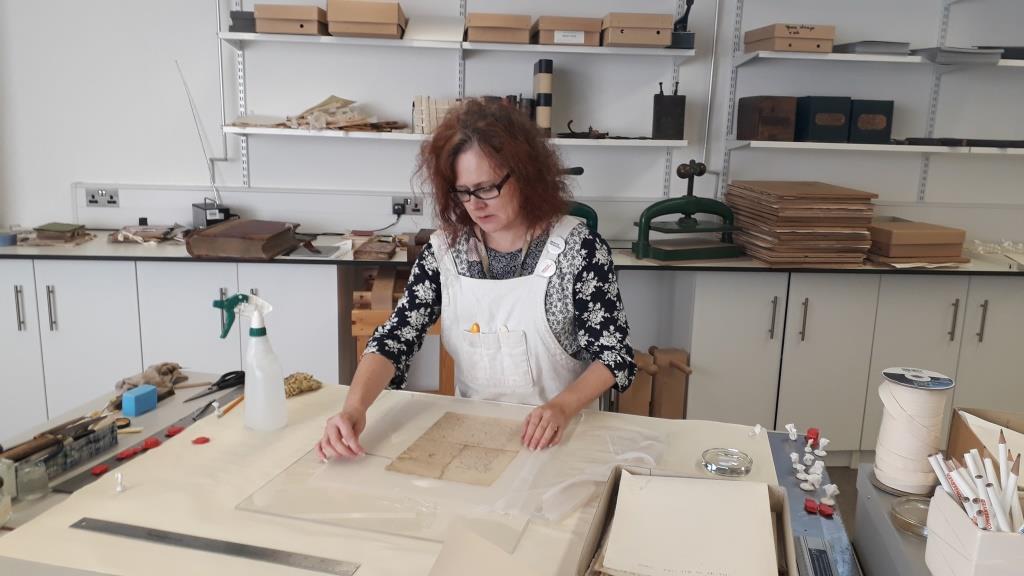What happens to my documents?
- 20th November 2018
| Have you ever wondered what happens to the boxes, files, books, photographs, maps etc. after you have dropped them off with a member of the archive team?
Do you feel a pang as those items that have cluttered up your attics and hallways for years disappear behind the door, wheeled off on a trolley as you wave them goodbye? |
| That’s probably a little extreme but a little curiosity as to what happens next is very natural and in this blog we will lift the lid (no pun intended!) on the journey your items go on from deposit to being viewed in our searchroom.
The forms you are asked to complete are called Accession Forms and each form is given a unique Bulk Accession number. Our accession forms are in triplicate. One copy to goes you, one stays with the item/s and one goes for processing and filing.
The documents and forms then go to our document reception area where Alan, our general assistant, re-packages them, checks the condition of them and makes a note of the general contents and date range. If any conservation work is needed he will make a note for our Conservator, Rhonda.
 Rhonda, our conservator
If the items just need a general clean then Alan will take them to our quarantine room and carefully brush them down. The items are then given a temporary home in the strongrooms and shelved ready for cataloguing. Next, Alan starts by entering the details from the form onto our cataloguing software CALM. The forms are then passed to the cataloguing team who work out the extent of the collection, entre depositor details, and give it its full reference number. The forms are then checked, dated and filed.
Deposits are then given a priority score for cataloguing. For instance an item that is in good condition and a gift to the archives will get a higher score than something that is in poor condition or is closed due to data protection legislation.
A list of all our accessions is sent at the end of each year to The National Archives and published on their Discovery website. This means that the items are searchable even if they haven’t yet been catalogued. It may be possible to view the items at this stage but notice is required so that the team can check for any damage or sensitive information. This would be done on a case by case basis.
When their time comes for cataloguing the items are fully listed and described on the CALM software.  Maggie, one of our archivists They are then carefully packaged, boxed and the boxes are stamped up. They are then given their permanent home in the strongrooms and their location is added to our database. The catalogue then goes for checking before being made ‘live’. This means that they can then be found on our online catalogue and ordered up to view in the searchroom. So there you have it, a whistle stop tour of the process your documents go through before they make it into our searchroom. If you are interested in having a look behind the scenes, tours and visits can be provided by our outreach team so get in touch at explorethepast@worcestershire.gov.uk |
Post a Comment